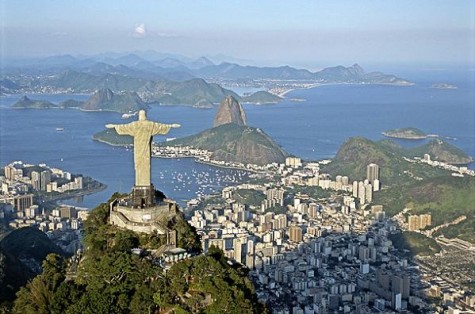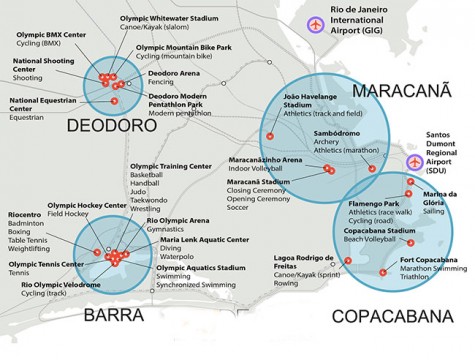Will Rio Be Ready for the Summer Olympics?

Rio Olympic logo
October 30, 2015
As 2016 approaches, the hype surrounding the Olympics is ever-growing. Athletes are currently competing in a series of qualifying events, and frontrunners are rising to the top. However, as the world prepares for the 2016 Summer Olympics, one question has surfaced– will Rio be ready?
The Olympics were originally in ancient Greece. Beginning in 776 BC, men competed rituals and games one day a year. The most popular were chariot racing, sprinting, and wrestling. As time went on, the games have evolved and changed.
The first organized Olympics were held in 1896. Since then, there has been an Olympic games held nearly every other year.
Every two years, cities submit bids to the International Olympic Committee (IOC) with the hope of eventually becoming a host city. To become a host city, cities must meet certain criteria. The city must be big enough to support an influx of people from reporters and spectators, to the athletes themselves. The city must have adequate means of transportation for everyone, as well as state of the art security measures. The applicant city must be able to convince their citizens that the city improvements and new jobs created by the Olympics will be worthwhile, as most of the funding comes from taxpayers. The city must also keep a positive portrayal in the media. There is also a fee of about $150,000 US dollars to apply for candidacy. This is because the International Olympic Committee must be sure the city has funding to support them. Once all of these standards have been met, the city becomes a candidate city. The IOC then picks the official host of the Olympic Games.

The Olympics bring people of all cultures together and unite nations as they root for their athletes. Each game is unique and remembered for a myriad of reasons. On October 2, 2009, Rio de Janeiro was chosen to host the 2016 summer Olympics after the city beat out Madrid, Spain, Chicago, United States, and Tokyo, Japan.
Since that date in 2009, Rio has been preparing to host the Olympics. It is estimated to cost the city over 14 billion US dollars. This is because Rio must build an Olympic village and venues for 41 events. Olympic Village is where the approximately 10,000 athletes will live during the games, in addition to many cosmetic fixes.
The events have been broken down into four quadrants; Barra de Tijuca, which is the fastest growing county in Brazil; Copacabana Beach, for outdoor water sports; Maracanã, the site of the opening and closing ceremonies; and Deodoro, a military club that will be used for equestrian, fencing, BMX cycling, and others.

Construction of these Olympic sites has been lagging. In 2014, the vice president of the IOC said Brazil’s preparation for the games was “the worst I’ve experienced.” There is also a question about the safety in Rio, but the IOC believes Brazil will have enough time to get it under control.
The main issue facing the games is water pollution. Raw sewage is being continuously dumped into the rivers outside of Rio de Janeiro, feeding into Olympic water sites. This will be a risk to athletes because of the bacteria in the water. Brazil believes it will be able to clean up the water for the games, but some are skeptical on how that would be possible.
In August of 2015, Eduardo Paes, mayor of Rio de Janeiro said, “All venues are running on schedule and will be delivered in time for next year’s games.”
Only time will tell if Rio de Janeiro will be ready for the Olympic games next year, but one thing is for sure: the Rio 2016 Olympics will be one to remember.

